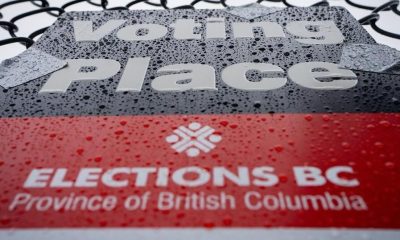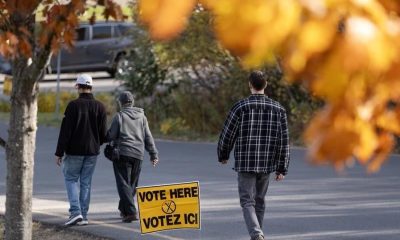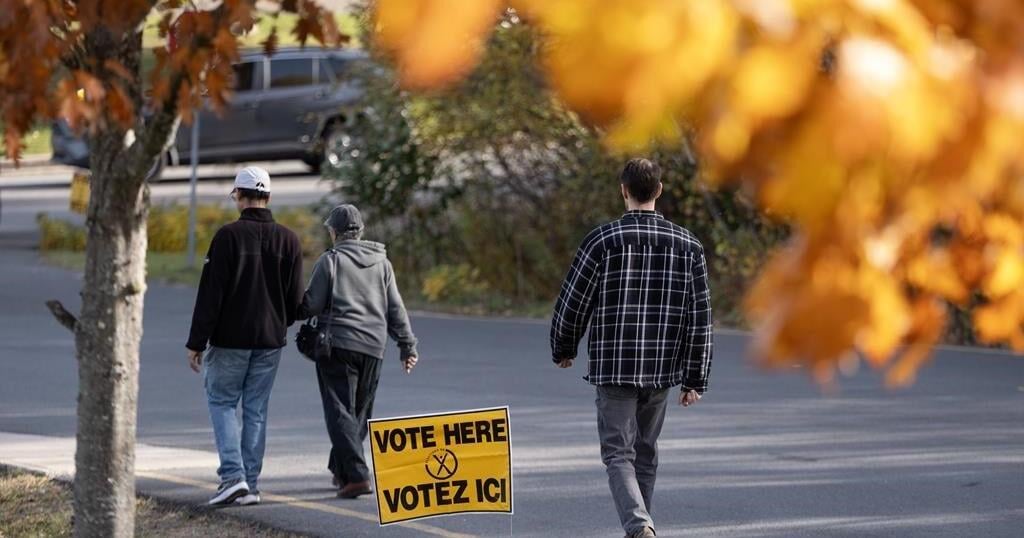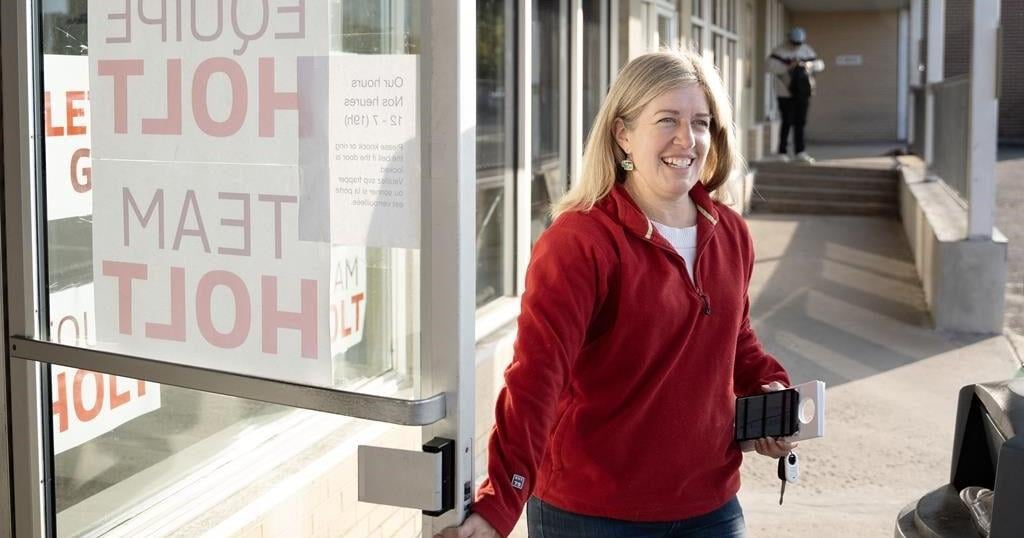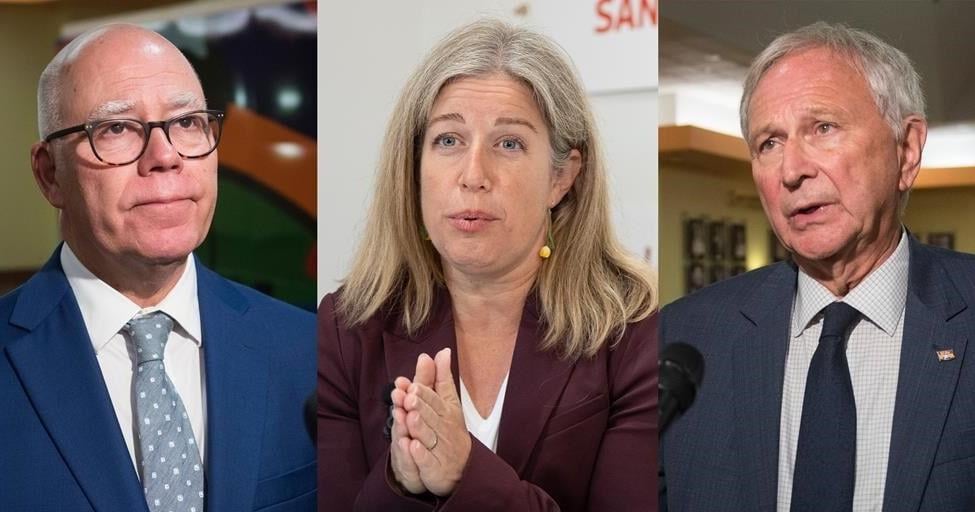The New Brunswick Liberal Party has won a majority government, and Susan Holt will become the first woman to lead the province.
Here’s the latest from election night. All times are ADT.
10:15 p.m.
The results of the New Brunswick election are in, and with virtually all of the ballots counted, the Liberals won 31 seats out of 49.
The Progressive Conservatives won 16 seats.
The Green Party won two.
Voter turnout was about 66 per cent.
—
10 p.m.
Prime Minister Justin Trudeau has congratulated New Brunswick Liberal Leader Susan Holt for her party’s victory in the provincial election.
Trudeau says on the X platform he’s looking forward to working with Holt to build more homes, protect the country’s two official languages, and improve health care.
—
9:48 p.m.
During her victory speech tonight in Fredericton, New Brunswick premier-designate Susan Holt thanked all the women who came before her.
Holt will become the first woman to lead the province after her party won a majority government in the New Brunswick election.
The Liberals are elected or leading in 31 of 49 ridings.
—
9:30 p.m.
Blaine Higgs says he will begin a transition to replace him as leader of the Progressive Conservatives.
After being in power for six years, the Tories lost the election to the Liberals.
Higgs, who lost his seat of Quispamsis, says, “My leadership days are over.”
—
9:17 p.m.
The Canadian Press is projecting that Blaine Higgs, leader of the Progressive Conservative Party of New Brunswick since 2016, has lost in the riding of Quispamsis.
Higgs, 70, has been premier of New Brunswick since 2018, and was first elected to the legislature in 2010.
—
8:45 p.m.
When asked about the election results, Progressive Conservative chief of staff Paul D’Astous says that over the last 18 months the party has had to contend with a number of caucus members who disagreed with its policy.
D’Astous says the Tories have also had to own what happened over the last six years, since they came to power in 2018, adding that the voters have spoken.
—
8:39 p.m.
The Canadian Press is projecting that David Coon, leader of the New Brunswick Green Party, has won the riding of Fredericton Lincoln.
Coon, 67, has been leader of the party since 2014, the year he was first elected to the legislature.
—
8:36 p.m.
The Canadian Press is projecting that the New Brunswick Liberal Party has won a majority government in the provincial election.
Party leader Susan Holt will become the first woman premier in the province’s history.
—
8:20 p.m.
Early returns show a number of close races across the province, with the Liberals off to an early lead.
Liberal campaign manager Katie Davey says the results will show whether party leader Susan Holt, a relative newcomer, was able to capture the attention and trust of the people of New Brunswick.
Davey says she believes voters have welcomed Holt and her message, which focused on pocketbook issues, especially health care.
—
8 p.m.
Polls have closed.
Eyes will be on a number of key ridings including Fredericton South-Silverwood, where Liberal Leader Susan Holt is vying for a seat; Saint John Harbour, which has been competitive between the Tories and Liberals in recent elections; and Moncton East, a redrawn Tory-held riding that the Liberals have targeted.
At dissolution, the Conservatives held 25 seats in the 49-seat legislature. The Liberals held 16 seats, the Greens had three, there was one Independent and there were four vacancies.
This report by The Canadian Press was first published Oct. 21, 2024.








